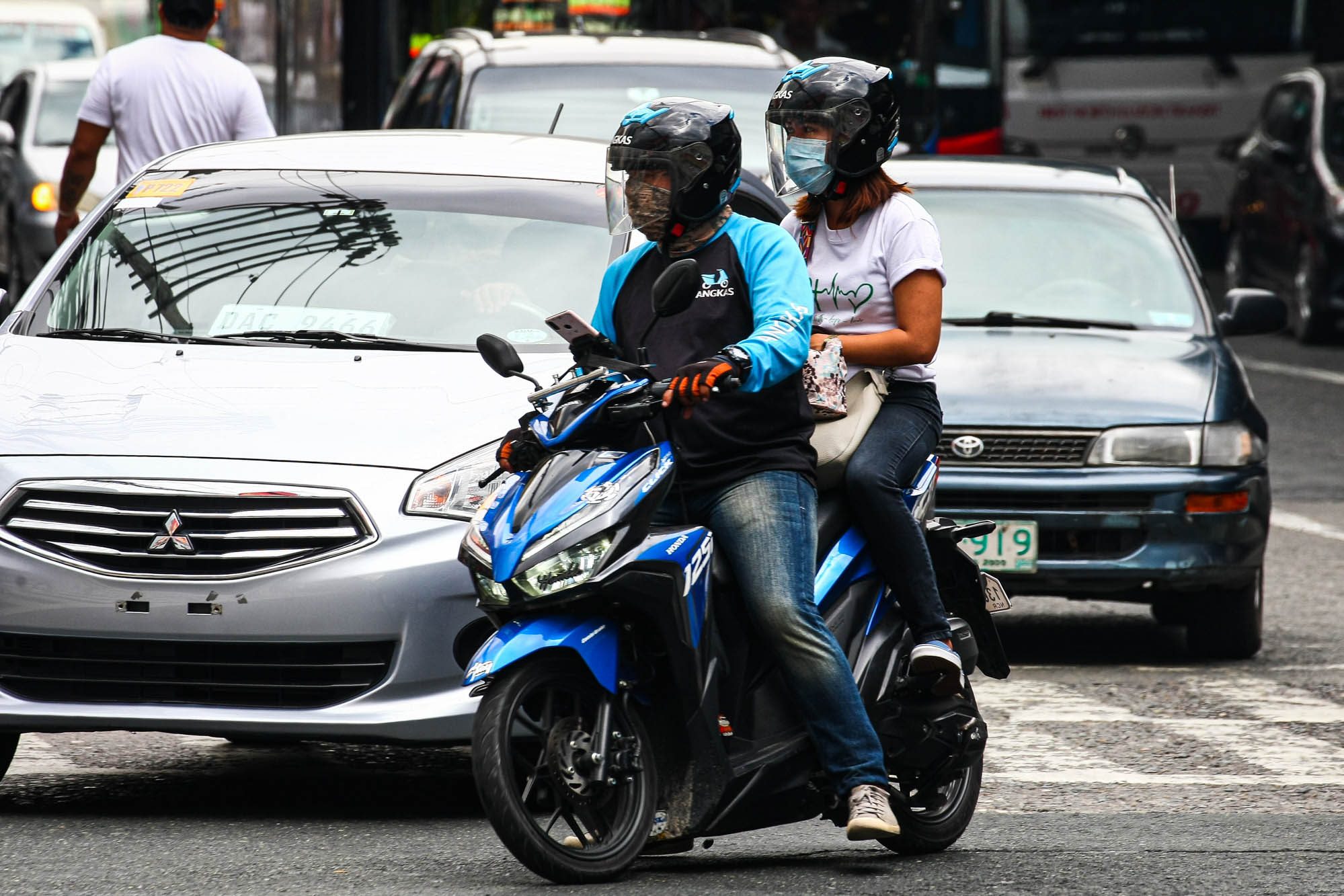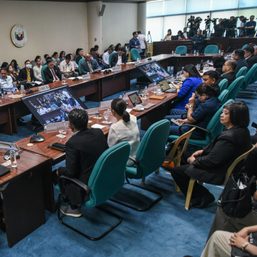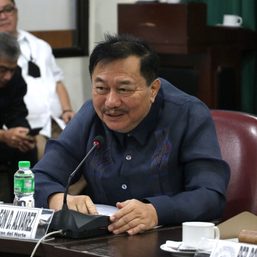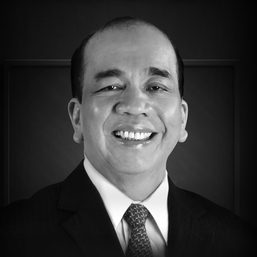SUMMARY
This is AI generated summarization, which may have errors. For context, always refer to the full article.

MANILA, Philippines – Motorcycle taxi providers Angkas, Move It, and JoyRide may soon find more competition as officials consider adjusting the cap on the number of motorcycle taxis allowed to operate. The move could open up slots to other qualified providers.
Land Transportation Office chief Vigor Mendoza brought up the suggestion during a House committee hearing, saying that the cap should be adjusted, pending the approval of Congress.
“Like any other franchise-giving body, it has to be opened up to all and given to all who are qualified,” Mendoza, who is part of the technical working group (TWG) managing the motorcycle taxi pilot study, said on Tuesday, August 8.
This comes after lawmakers asked members of the TWG why only three motorcycle taxi companies were permitted to operate.
Although motorcycle taxis have been informally running for years as “habal-habal,” they were first allowed to operate legally through a pilot study launched in 2019. But until now, there is no law in effect recognizing motorcycle taxis as a form of public transportation. Instead, the three motorcycle taxi providers deemed “qualified” – Angkas, Move It, and JoyRide – continue to operate under the pilot study.
Ride-hailing giant Grab also tried to join the pilot study, but was turned down by the TWG. In 2022, Grab bought out Move It, in a deal that some lawmakers have called a “backdoor entry” into the industry.
Now, lawmakers are asking why more motorcycle taxi providers haven’t been allowed to join. For instance, SAGIP Representative Rodante Marcoleta alleged that some applicants had 2,500 riders “ready to operate and ready to participate” but did not even receive a reply from the TWG.
Antipolo City 2nd District Representative Romeo Acop, who also sits as chairman of the House committee on transportation, said the TWG was effectively “arrogating unto [itself] the power of Congress to grant franchises.”
In defense of the TWG’s actions, Land Transportation Franchising and Regulatory Board Chairman Teofilo Guadiz III said the group was only continuing its “original vetting process done in 2020,” which included the standard business permits and compliance with training facility requirements and COVID-19 protocols.
The TWG was considering four more applicants for motorcycle taxis, but Guadiz clarified that they have temporarily stopped the process since the pilot study is technically terminated.
If the study is terminated, why are there still motorcycle taxis on the road? Guadiz said they have been allowed to continue operating due to “requests” from the Senate.
“The policy of allowing them to continue remains in deference also to a request from the Upper House to further expand this study,” Guadiz said, referring to verbal requests from senators Grace Poe and Raffy Tulfo.
However, during the House meeting, Mendoza made it clear that the pilot study will continue while the TWG figures out how to settle issues such as “multihoming,” or the practice of one rider joining several motorcycle taxi services, and liability for damages.
“We are now at the tail end, given what the technical working group has done. I think we can now put a timeline, a period to this, and come up with a recommendation to the House and the Senate of a transitory provision as to what will happen pending the creation of a bill.”
The transitory provision would govern how motorcycle taxis will operate in the period between the ending of the pilot study and the enacting of a bill legalizing them as a mode of public transportation.
Can riders ‘multihome’?
Representatives from Angkas, Move It, and JoyRide all said they do not allow riders to serve multiple motorcycle taxi providers at once.
However, Guadiz clarified that under the current guidelines, multihoming is technically not forbidden. This means that a rider can simultaneously work for Angkas, Move It, and JoyRide. And in practice, riders do join several services at once.
While juggling multiple motorcycle taxi providers can provide riders with more passengers and a higher income, it also comes with downsides.
Digital Pinoys national campaigner Ronald Gustilo disagrees with multihoming since it could complicate the already unclear rules governing the liability of motorcycle taxis in the event of accidents. He added that allowing existing riders to multihome could also reduce slots in other motorcycle taxi providers that could have gone to new riders.
As of March 2023, Angkas has 28,614 riders. Meanwhile, as of April 2023, Move It has 6,471 riders and JoyRide has 19,500 riders.
– Rappler.com
Add a comment
How does this make you feel?






There are no comments yet. Add your comment to start the conversation.